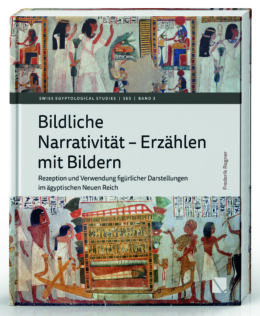Die intakt erhaltene Goldbüste des Kaisers Septimius Severus aus Nordgriechenland ist ein ausserordentliches Zeugnis der römischen kaiserlichen Porträtkunst. Sie gehört zu einer Gruppe von nicht mehr als sechs Kaiserbildnissen aus Gold, die wir aus der Antike kennen.
Zusammen mit der berühmten Goldbüste des Kaisers Marc Aurel von Avenches ist sie wohl die bedeutendste Vertreterin einer Gattung, die in der Antike sehr viel häufiger gewesen sein muss und gewissermassen als mobiler Stellvertreter des Kaisers im Kult, in der Armee und bei öffentlichen Amtshandlungen fungieren konnte.
Die Büste wurde vor über 50 Jahren durch Zufall entdeckt. Umso erstaunlicher ist es, dass sie bis heute so gut wie unpubliziert ist. Dass es Frau Dr. de Pury-Gysel gelungen ist, von der griechischen Antikenbehörde die Erlaubnis zu erwirken, die Goldbüste im Original studieren und monographisch veröffentlichen zu dürfen, kann ihr nicht hoch genug angerechnet werden, zeugt aber gleichzeitig von ihrem durch eine jahrelange Forschungstätigkeit erworbenen wissenschaftlichen Renommee.
In ihrer Studie nähert sich Anne de Pury-Gysel der Goldbüste aus unterschiedlicher Richtung an. Neben den primären Aspekten der Fund- und Forschungsgeschichte, dem historischen Kontext, der Herstellungstechnik und der stilistischen Einordnung steht die Frage nach der Bedeutung und Funktion der Kaiserbildnisse, die in dieser umfassenden Form bisher noch nie behandelt wurde.
Indem sie nicht nur das Einzelwerk aus Nordgriechenland, sondern die Gattung der bislang bekannten dreizehn Gold- und Silberbüsten als Ganzes in den Fokus nimmt, schafft die Autorin mit ihrer Studie ein Referenzwerk, das in der Forschung zweifelsohne eine breite Rezeption finden wird.
Format: 184 Seiten, zahlreiche Abbildungen, Hardcover, 245 × 305 mm Published in Basel Jahr: 2017 Language/s Deutsch, Englisch (Französisches Summary) Weight 700 Price (CHF) 65 CHF Price (EUR) 65 EUR ISBN: 978-3-952454-26-8 DOI: 10.19218/3952454268










